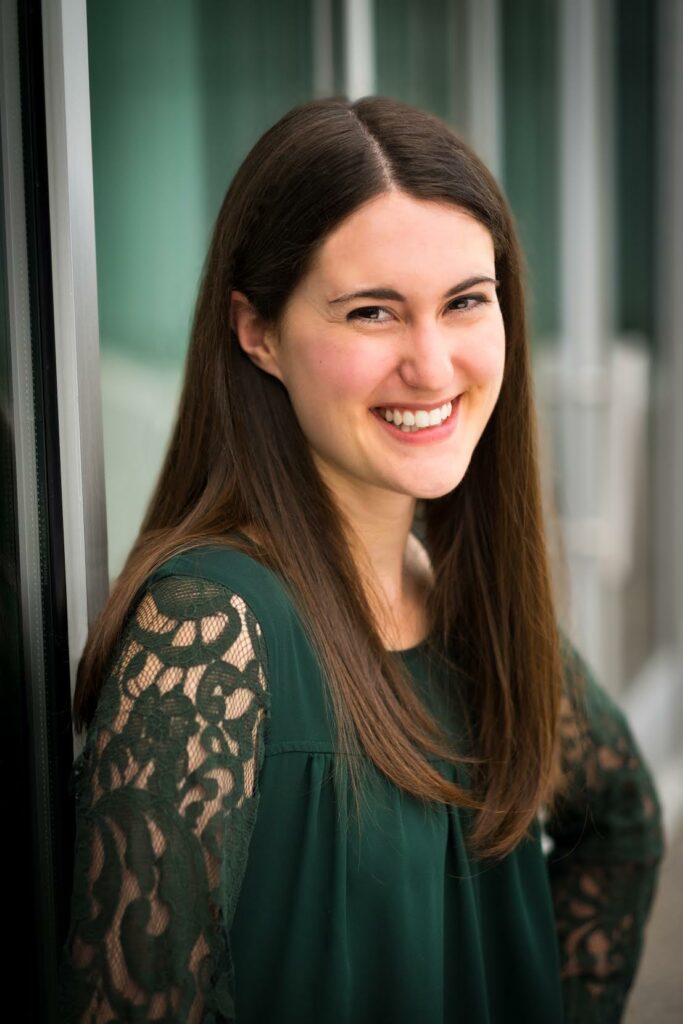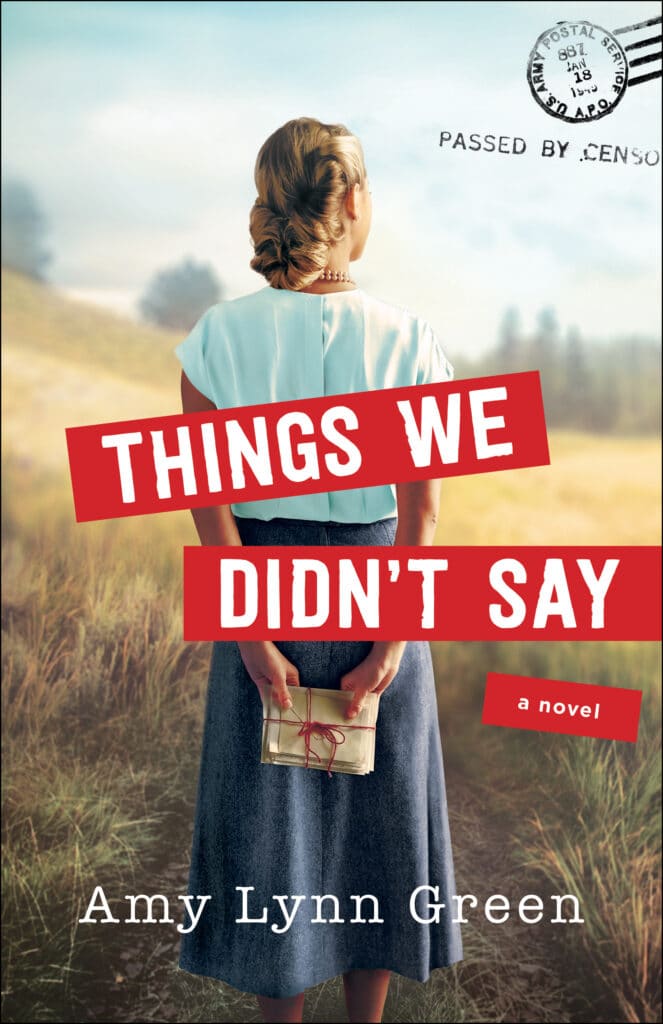Amy Lynn Green, author of Things We Didn’t Say
Genre Fiction Category, sponsored by Macalester College
Each week leading up to the 33rd annual Minnesota Book Awards announcement, we are featuring exclusive interviews with our 36 finalists. You can also watch the authors in conversation with their fellow category finalists here.
In a year defined by a pandemic and its fallout, virtually everything about our lives has changed in some way. How has COVID-19 impacted your writing habits and preferences? Has the unique zeitgeist of the past year influenced your writing output in any ways that you can pinpoint?

During the past year, I bought my first house, got married, and released my debut novel, Things We Didn’t Say—all major milestones that looked dramatically different because of the pandemic. Not all of those changes were bad, but creativity can be a fragile thing, and the isolation, stress, unrest, and fear we all experienced certainly didn’t help. And yet. It was a year where I had a chance to re-set my priorities, remember why community matters, and feel slightly more kinship with the emotions of collective crisis experienced by the WWII-era characters I write about.
Would you tell us one or two things about your finalist book that you are particularly proud of, and why? (Sure, it may feel a bit un-Minnesotan to say so, but it’s not boasting if we ask!)
In one of my favorite reader reactions, a reviewer wrote, “Each character was so unique and three-dimensional that after I read this book, I felt like I loved people more.” By writing a full book entirely in letters and other documents, I had to become over a dozen different people, to describe the world from their perspective, using their sense of humor, prejudices, and fears. Wherever I’ve made those letters seem like they were written by real, flawed people in a way that pulls readers into the story, I feel like I’ve done something right.
Another aspect would be the sheer amount of Minnesota history I was able to sneak into the story. From real-life reactions to POW camps in the Midwest to the amazing men of the Military Intelligence Service Language School who trained translators and spies. I loved getting to share stories of Minnesota’s past with others.
What do you hope that your audience learns or takes away from your book?

When I turned in the final manuscript of Things We Didn’t Say, my editor commented about how many issues it raises that are relevant today: how to evaluate sensational media, the danger of listening to the loudest and angriest voices, the difficult question of what it looks like to love your neighbor, how you can honor your country and strive to make it better even when you don’t agree with all of its policies. So I hope that readers will come away with something to think about. And if they’re also inspired to write a letter—a lost art form that I love—so much the better!
Minnesota enjoys a reputation as a place that values literature and reading. If this sentiment rings true for you, what about our home state makes it such a welcoming and conductive place for writers?
Yes! When I have family and friends visiting, I make sure to bring them to at least one of our many independent bookstores. The fact that we have such a thriving community of booksellers is evidence of a passion for reading that warms my heart in the coldest of winters. Besides that, I loved the Twin Cities library system when I could browse their shelves and show up at their programming, and I love them now as faithful librarians work hard to keep us safe—and deliver me WWII research books by inter-library loan. I’m so grateful for the literary citizenship of Minnesotans.
What advice would you give to an aspiring writer with an interest in your category?
My fellow genre fiction finalists who have had longer careers will probably have more to say on this, but even after several practice-manuscripts-in-a-drawer and a debut novel, I can say: read widely. Observe others, sure, but also seek to listen to them and understand them (it’s a rare trait). Keep writing, and even if you think what you’re working on is terrible, you’re getting better, and you’re pressing forward into creative work when many others would have given up.
Tell us something about yourself that is not widely known! (It doesn’t have to be about your writing.)
I’m a twin, and my twin sister is very different from me, to the point where we have exactly opposite Myers-Briggs types (I fall into the ENFP category). She’s an introverted, reliable, wonderfully-structured math teacher with a gift for remembering people’s names. I’m a quirky, disorganized, overly-enthusiastic author who writes random scenes from her books out of order. And yet, in a lot of ways, we’re a perfect team, and we’ve always been best friends.
Amy Lynn Green is a publicist and freelance writer and was the 2014 winner of the Family Fiction short story contest. This is her first novel.

